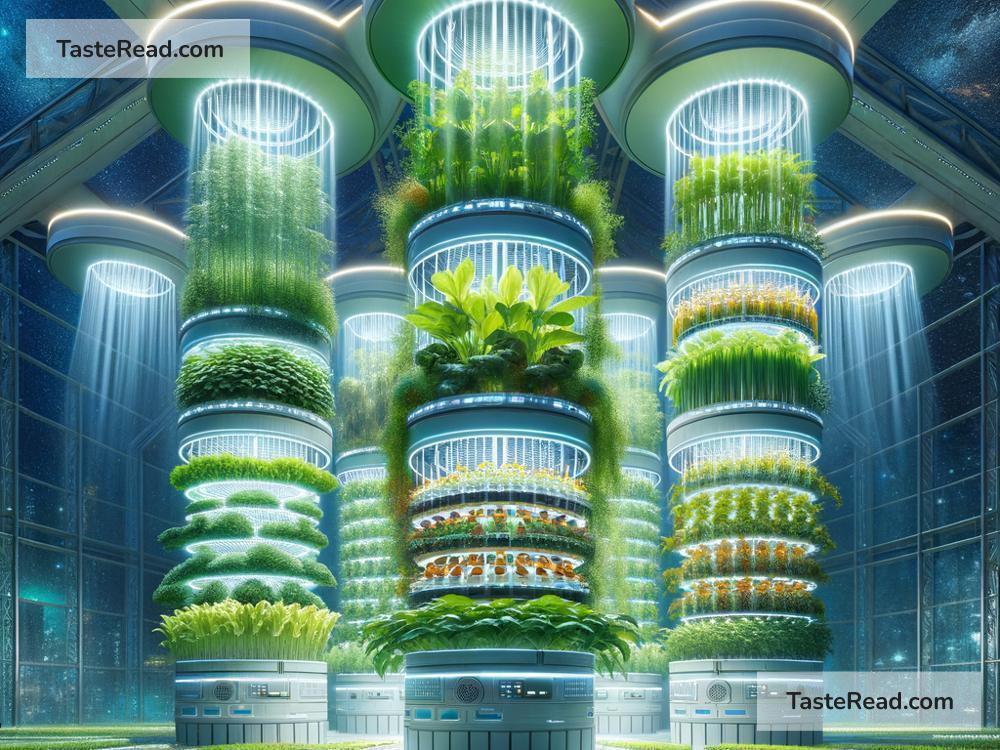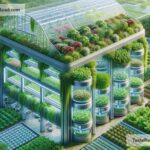The Future of Food and Ecological Stewardship
As the world changes, so does the way we grow, eat, and think about food. The future of food is not just about creating more to feed a growing population; it is also about protecting the earth and its resources. This is where the idea of “ecological stewardship” comes into play. It means taking care of the environment and leaving it in good condition for future generations.
In this blog post, we will explore how food and ecological stewardship are connected, what challenges we face today, and the steps we can take to ensure a brighter, healthier future.
The Growing Demand for Food
By 2050, the global population is expected to reach nearly 10 billion people. As populations grow, so does the demand for food. At the same time, climate change, deforestation, and pollution make growing food more challenging. Crops need healthy soil, clean water, and stable weather to thrive. But our planet is under stress, and these vital resources are being harmed.
Traditional farming methods often use a lot of water and take nutrients from the soil without giving them back. They sometimes rely on chemical fertilizers or pesticides that can hurt ecosystems. As a result, food production becomes less sustainable over time.
What Is Ecological Stewardship?
Ecological stewardship is all about caring for the planet. It means using natural resources—such as land, water, and energy—in ways that protect and restore the environment. When it comes to food, ecological stewardship encourages practices like sustainable farming, reducing waste, and eating in ways that support local ecosystems.
Farmers, businesses, policymakers, and even individuals have a role to play in ecological stewardship. It’s not just about growing food; it’s about how food systems interact with nature. This way, we can meet our needs today without harming the earth for tomorrow.
Innovations Shaping the Future of Food
Thankfully, many people around the world are working to solve these problems. Innovative ideas and technologies are changing how we produce food while protecting the planet.
-
Vertical Farming: Instead of taking up land, vertical farms grow crops indoors, stacked upward like shelves. These farms use LED lights and carefully controlled environments that let plants grow year-round. Vertical farming uses less water and stops soil erosion, making it a more sustainable option.
-
Plant-Based Proteins: Meat production is a major source of greenhouse gases and uses large amounts of water and land. Plant-based proteins, such as legumes, tofu, and alternative meat products, provide similar nutrients without the environmental costs of livestock farming.
-
Regenerative Agriculture: This farming method focuses on improving soil health and restoring ecosystems. Farmers plant cover crops, avoid chemical fertilizers, and let livestock graze naturally. Regenerative practices help reduce carbon emissions and enhance biodiversity.
-
Lab-Grown Food: Scientists are developing meat, dairy, and other foods that are grown in labs instead of relying on animals or vast farmland. These innovations could help reduce ecological damage and food scarcity.
-
AI and Precision Agriculture: Farmers are increasingly using artificial intelligence (AI) and data analysis to make smarter decisions. Precision agriculture allows them to reduce water waste, control the use of fertilizers, and target pests without harming the environment.
Reducing Food Waste
Another big challenge is food waste. A shocking amount of food—nearly one-third of what is produced globally—is thrown away each year. Food waste happens at various stages: farms, grocery stores, and even in our own kitchens.
Reducing food waste is an important way to support ecological stewardship. Instead of tossing leftovers, people can compost scraps, plan meals better, and buy only what they need. Businesses and governments can also promote policies to redistribute surplus food to communities in need.
Global Collaboration
Solving the challenges of food and ecological stewardship will take teamwork around the world. Governments can create policies that promote sustainable farming and protect natural resources. Scientists and innovators can develop eco-friendly technologies. Businesses can reduce waste, source ingredients ethically, and offer more sustainable products.
But it’s not just up to leaders and organizations. Ordinary people play an important role, too. Choosing local foods, eating less meat, and supporting farmers who use sustainable practices can make a big difference. Learning about where our food comes from and how it’s grown helps us make informed choices.
A Healthier Future for People and the Planet
The future of food doesn’t have to mean sacrificing the health of the earth. It’s possible to grow enough food for everyone while also taking care of natural ecosystems. By thinking about food systems—not just what we eat but how food is grown, transported, and consumed—we can create a world where both people and the environment thrive.
Being good stewards of the earth means making thoughtful decisions today so that life can flourish tomorrow. Whether it’s adopting innovative farming methods, reducing waste, or eating sustainably, every small action leads to a healthier future.
Conclusion
The future of food and ecological stewardship is all about balance. As we strive to meet the needs of a growing population, we must remember that our planet has limits. By working together and making smart choices, we can create food systems that feed everyone while protecting the environment.
As individuals, we can support these efforts in our daily lives. Choosing sustainable foods, reducing waste, and learning about environmental issues may seem small, but it adds up. Together, we can ensure both the planet and its people have a bright future ahead.


